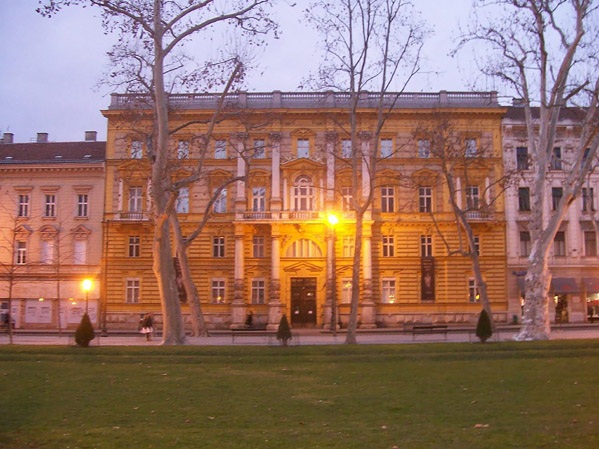|
Sense and Sustainability: International Conference on Archaeology and Tourism Zagreb 06. May - 10. May 2019
The Archaeological Museum in Zagreb and the European Association of Archaeologists would like to invite you to the first archaeology and tourism conference which will be held in Zagreb, Croatia, from 6th to 10th of May 2019.
The Conference is organized by the Archaeological Museum in Zagreb (AMZ) and the European Association of Archaeologists (EAA).
The conference is one of the project activities of the project Monumentalized Early Iron Age Landscapes in the Danube River Basin (acronym: Iron-Age-Danube, project code: DTP1-1-248-2.2, co-financed by ERDF).
The scientific program is organised around four main themes: Heritage in Tourism Destination Management, Sustainable development, archaeology and tourism, Tourism and archaeological heritage management in Protected areas, World heritage sites and National parks and Cultural Routes.
1. Heritage in Tourism Destination Management
This theme will explore archaeological heritage resources and the sustainability challenges they face with visitation, climate change and urban growth impacts, and their evolving role within a venue's tourism product mix. The theme will examine how management in areas of (often fragile) archaeological monuments and remains caters for: tourist numbers and visitation patterns, tourist access, infrastructure and circulation; and the archaeological interpretation, presentation and conservation management. These will be discussed in the context of operational documents including UNESCO's Historic Urban Landscapes approach and Sustainable Tourism Programme guidance document
2. Sustainable development, archaeology and tourism
In this theme we aim to mark time and check what we jointly understand by the sustainable development of public archaeological sites. What are sensible approaches to the sustainable development, use and management of archaeological sites that are open to the public regarding e.g. the community, site interpretation, local business development, and the environment.
3. World heritage sites and National parks
This theme seeks to examine established and/or site specific management frameworks within designated Protected Areas, World Heritage Sites and National Parks and how these integrate specific provisions for archaeological heritage management especially where there are other management concerns. The theme will examine how management in often fragile Protected Areas, WH sites and National Parks caters for the presentation of both archaeological heritage (cultural values) and, where it arises, how it can be linked to the protection, conservation, management and presentation of natural values.
4. Cultural Routes
This theme aims to provide a forum to analyse and assess the impact of this development in relation to the preservation, protection and valorisation of archaeological heritage on the one hand, and the way in which the concept has been the used by the heritage tourism sector. The session will serve as a means for exchange of ideas and experiences between stakeholders from both heritage and tourism and beyond.
We’re bringing some of the most renowned speakers in the industry, along with a rich scientific and social programme.
https://zagrebarchaeologytourism.com/
Archaeological Museum in Zagreb
The Archaeological Museum in Zagreb is one of the direct successors to the former National Museum, the oldest museum institution in the Croatian capital, founded in 1836.
The museum collections, today consisting of more than 450,000 varied artifacts and monuments, have been gathered over the years from many different sources. Most of this material in the first years and decades of museum activity was acquired through purchase or gifts, and a major role was played by the "museum representatives", who were active in the field throughout all of Croatia. As early as the 1880s, the museum began systematic archaeological excavations in various Croatian regions, acquiring in this manner abundant material, and at the same time valuable data for studying the everyday life of the inhabitants from the prehistoric age to the mediaeval period. Today, field excavations are the main means of gathering such material and data. The most recent museum activities in this field include the systematic excavation and conservation (in the form of archaeological parks) of Roman urban architectural complexes at Scitarjevo near Zagreb (Andautonia) and at Varazdinske Toplice (Aquae Iasae), while other scientific staff of the museum are excavating sites in the Zumberak area and at Stenjevec near Zagreb, as well as at various other archaeological sites in the continental sections of Croatia, mainly in the Zagreb metropolitan area.


|
